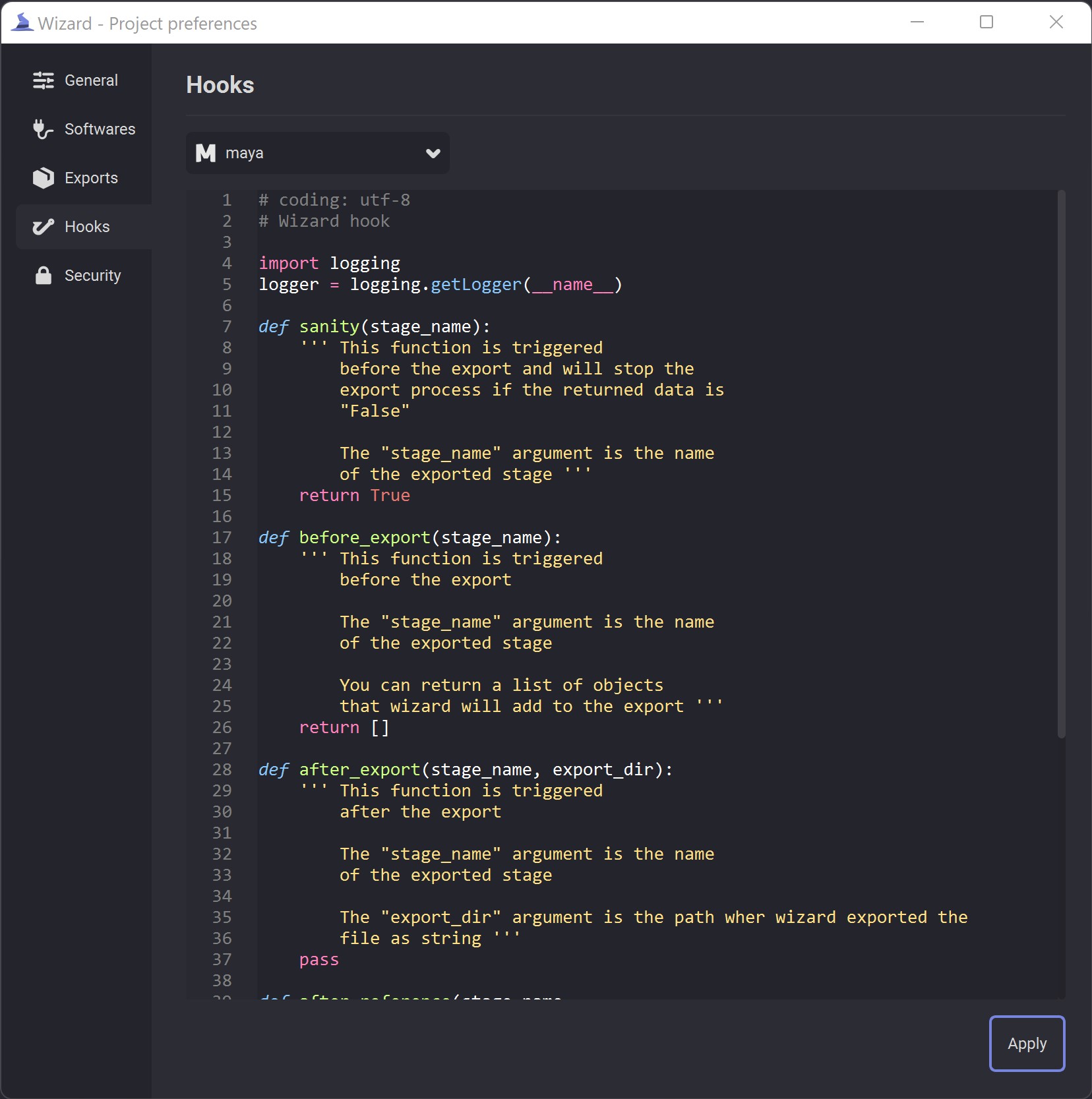Hooks¶
The hooks are used to intercept the basics events of wizard within the softwares. For exemple, you can create your own sanity check at export.

Here is the default code sample for Maya.
# coding: utf-8
# Wizard hook
import logging
logger = logging.getLogger(__name__)
def after_scene_openning(stage_name, string_asset):
''' This function is triggered
when you open the software.
The "stage_name" argument is the name
of the exported stage
The "string_asset" argument is the current
asset represented as string
The "scene_path" argument is the scene path,
if there is no scene, it will be 'None' '''
pass
def after_save(stage_name, string_asset, scene_path):
''' This function is triggered
after an incremental save.
The "stage_name" argument is the name
of the exported stage
The "string_asset" argument is the current
asset represented as string
The "scene_path" argument is the saved
incremental file'''
pass
def sanity(stage_name, string_asset, exported_string_asset):
''' This function is triggered
before the export and will stop the
export process if the returned data is
"False"
The "stage_name" argument is the name
of the exported stage
The "string_asset" argument is the current
asset represented as string
The "exported_string_asset" argument is the
asset wizard will export represented as string'''
return True
def before_export(stage_name, string_asset, exported_string_asset):
''' This function is triggered
before the export
The "stage_name" argument is the name
of the exported stage
The "string_asset" argument is the current
asset represented as string
You can return a list of objects
that wizard will add to the export
The "exported_string_asset" argument is the
asset wizard will export represented as string'''
return []
def after_export(stage_name, export_dir, string_asset, exported_string_asset):
''' This function is triggered
after the export
The "stage_name" argument is the name
of the exported stage
The "export_dir" argument is the path wher wizard exported the
file as string
The "string_asset" argument is the current
asset represented as string
The "exported_string_asset" argument is the
asset wizard just exported represented as string'''
pass
def after_reference(stage_name,
referenced_stage_name,
referenced_files_dir,
namespace,
new_objects,
string_asset,
referenced_string_asset):
''' This function is triggered
after referencing from wizard
The "stage_name" argument is the name
of the exported stage
The "referenced_stage_name" argument is the name
of the referenced stage
The "referenced_files_dir" argument is the directory where the
referenced files comes from
The "namespace" argument is the namespace of the reference
The "new_objects" argument is a list of the new objects added
to the current scene after the reference
The "string_asset" argument is the current
asset represented as string
The "referenced_string_asset" argument is the
asset wizard just imported represented as string'''
pass